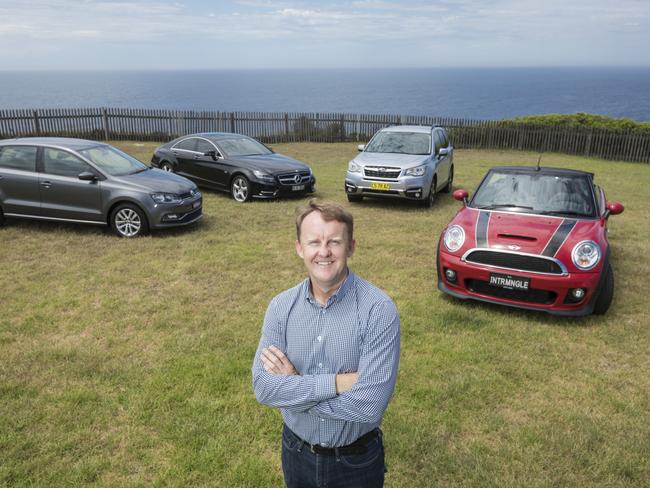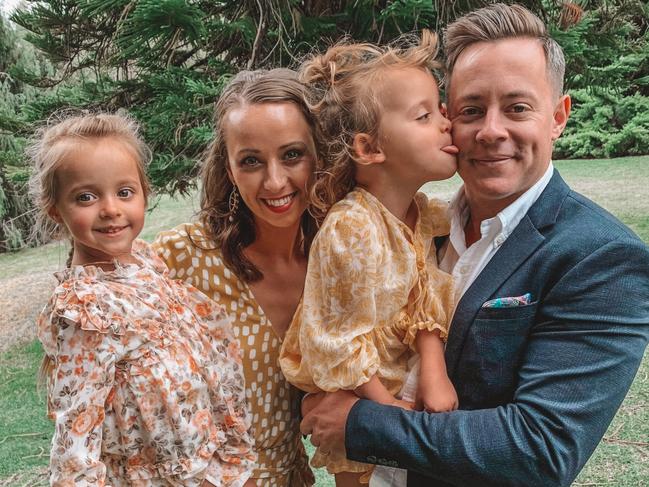‘Netflix for cars’: Why subscription-based car ownership is winning fans in Australia
Up to 100,000 Australians are expected to stop buying new cars each year, with many expected to flock to subscription-based ownership. Here’s why.
Motoring news
Don't miss out on the headlines from Motoring news. Followed categories will be added to My News.
Car makers are bracing for the ‘Netflix’ of car ownership to revolutionise Australian roads as analysts predict up to 100,000 people will stop buying new cars each year.
Month-to-month car borrowing schemes are gathering momentum as drivers look to minimise their financial commitment and maximise transport flexibility.
KPMG automotive analyst Steven Bragg says subscription-based car services are “picking up in popularity”.
“Based on what we have seen, we are expecting it to be five or 10 per cent of the market in the long run,” he said.
“That’s 100,000 cars per year.”
Bragg says the automotive industry is starting to transform following a 7.8 per cent decline in sales last year.

Hyundai has backed local start-up Carly, which announced an expansion into Queensland on Wednesday night, while Holden has adapted General Motors’ Maven service locally.
Mercedes and Porsche have experimented with monthly rental programs overseas which allow people to change cars to suit their lifestyle – even swapping a sedan for a sports car on weekends.
Australian subscription services such as Carbar, FlexiGo and Carly differ from membership programs such as GoGet by allowing people to choose their own car, not share it and use it with minimal future commitment.
Bragg said the traditional sales model, where people spend tens of thousands on a new car before trading it in at a significant loss, “is just not working” for many motorists or dealers.
But it is cheaper than borrowing a car on a month-to-month basis.
A 2019 Nissan X-Trail costs $224 per week through Carly, which wraps insurance, maintenance and depreciation into one payment.
Nissan’s finance arm will sell you the same car for an $83 per week plan stretched over four years, with a $15,350 payment at the end of the period that works out at $157 per week – plus insurance, servicing and registration fees.
And you get to keep the car at the end of the deal.
But Carly chief executive Chris Noone said the “Netflix for cars” model is for people who want the convenience of being able to change cars on a regular basis, along with minimal future commitment, as customers can hand cars back with a month’s notice.
“We are not saying subscription is a substitute for buying a car,” Noone said.
“But it is an alternative.
“People like it because it gives them peace of mind. They know that if you need to change the vehicle you can do it.”

Originally pitched toward young drivers accustomed to pay-as-you go services such as Spotify, Netflix and no-contract gym memberships, Noone said car subscriptions appeal to a broader customer base.
“They’re actually skewing older than we thought,” he said.
“We are starting to see the older generation seeing the benefit of this as well.
“They don’t like paying for a depreciating asset that they’re not using.”
Sunshine Coast resident Jake Harris was the first to sign up for Carly’s Queensland expansion.
He sided with the blockbuster trend for dual-cab utes by choosing a Ford Ranger before realising a smaller car would be more suitable for family life.
“We thought a second car would be useful but we weren’t ready to jump into the financial implications of that,” he said.
MORE NEWS:
Trump’s days numbered: Sanders’ bold call after shock win
Samsung’s new beast could struggle in Australia
‘No one cares’: Government slammed as more Aussies infected
Revealed: Where Australia should get its electricity
“When the opportunity came about for a test run we thought this might be the solution to our second-car needs.
“Its handy to have a ute for a few jobs around the house … but we haven’t been using it for its intended purpose.
“We’re thinking about changing to a different car – a smaller, cheaper one.
“We can easily change over to a smaller, cheaper car when needed.”
